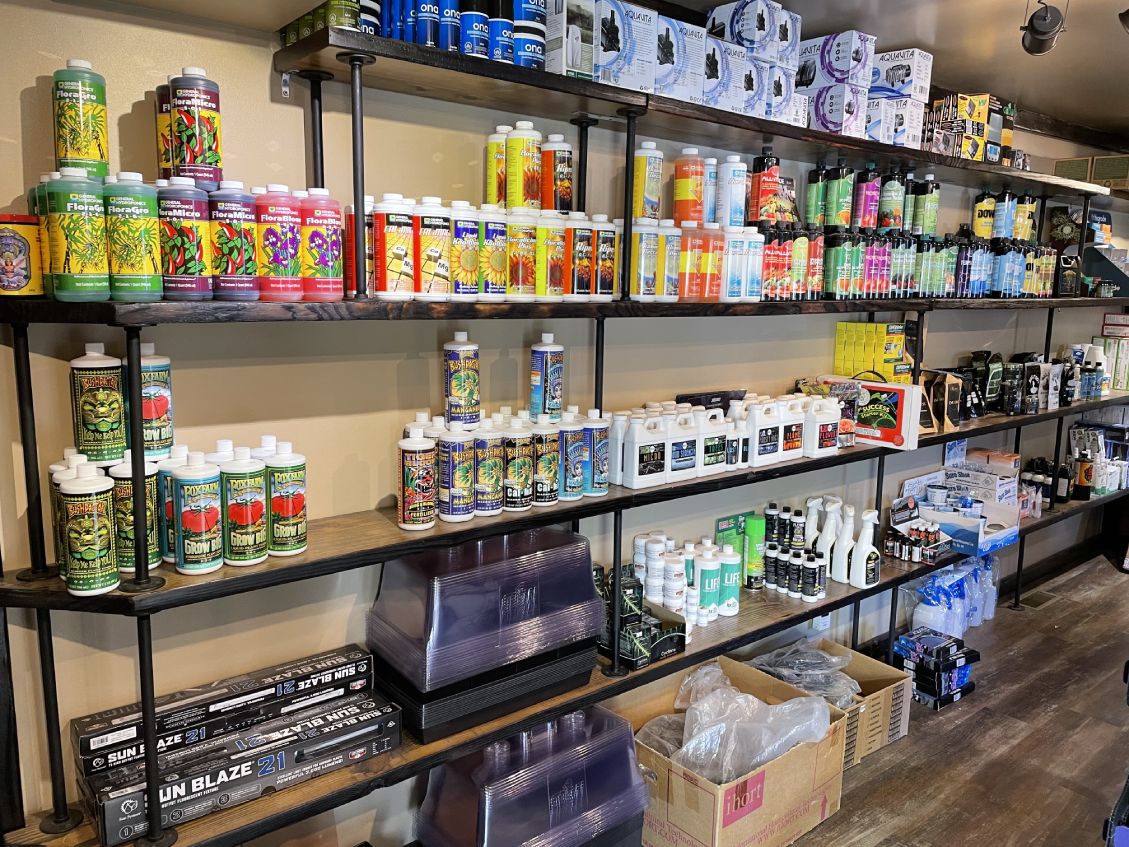Release Your Green Thumb: The Indoor Earthworm's Planting Method Demystified
Release Your Green Thumb: The Indoor Earthworm's Planting Method Demystified
Blog Article
Enhance Your Gardening Abilities With Hydroponics: Exploring Benefits
The technique of growing plants without dirt might appear non-traditional at initially, yet its benefits are worth taking into consideration. As we delve into the world of hydroponic gardening, we uncover a variety of advantages that not just boost plant development yet additionally provide distinct chances for individuals looking to boost their horticulture abilities.
Benefits of Hydroponic Horticulture
Hydroponic horticulture uses countless benefits because of its efficient use of resources and exact control over plant development problems. By giving plants with straight accessibility to nutrients dissolved in water, hydroponic systems remove the requirement for soil, minimizing water usage by approximately 90% contrasted to typical soil-based farming. This reliable nutrient distribution approach likewise enables for faster plant growth rates and greater returns, making hydroponic gardening an eye-catching choice for maximizing minimal room and sources.
Furthermore, the controlled setting of hydroponic systems makes it possible for growers to enhance elements such as humidity, temperature level, and ph levels, bring about healthier plants with reduced threat of insects and diseases. This accurate control over expanding conditions not only advertises quicker and more regular plant development but likewise permits for year-round growing despite outside weather.
Faster Plant Growth With Hydroponics
Using advanced nutrient shipment systems, hydroponic horticulture facilitates increased plant growth prices compared to standard soil-based cultivation techniques. In hydroponic systems, plants have direct access to essential nutrients liquified in water, enabling optimum absorption without the requirement to use up energy developing extensive origin systems to look for nutrients in the dirt. This effective nutrient delivery device enables plants to reroute their power in the direction of robust vegetative growth and respected fruiting or flowering.
In addition, the regulated atmosphere in hydroponic setups ensures that plants get the ideal conditions for growth constantly. Variables such as temperature level, light, moisture, and ph levels can be meticulously monitored and gotten used to produce the optimum expanding atmosphere for each plant selection. By removing the irregularity present in soil-based gardening, hydroponic systems offer plants with a desirable and stable setup that maximizes their growth potential.

Water Conservation Conveniences
Provided the reliable nutrient delivery system and regulated environment of hydroponic systems, one considerable advantage worth exploring is the conservation of water resources. Hydroponic horticulture consumes to 90% much less water compared to conventional soil-based horticulture methods. This considerable decrease is connected to the closed-loop system where water is recirculated and reused, lessening wastefulness. In conventional soil horticulture, water is shed through evaporation, overflow, and percolation past the origin area, resulting in ineffectiveness. In hydroponics, the nutrient remedy is supplied straight to the plant origins, making certain optimal water uptake and decreasing water loss.
In addition, hydroponic systems enable precise control over water usage, with the capacity to readjust and keep track of nutrient levels based on plant needs. This targeted method stops overwatering, a common issue in soil-based gardening, more adding to water conservation efforts. By maximizing water performance and lessening waste, hydroponic gardening emerges as a environmentally friendly and sustainable choice for individuals seeking to minimize their water consumption in gardening techniques.
Year-Round Plant Farming

By managing elements such as nutrient, light, and temperature level degrees, hydroponic systems allow plants to thrive regardless of external climate condition. This regular setting enables constant plant growth and harvest, giving a dependable supply of fresh produce also in the dead of wintertime.
Moreover, the capability to cultivate plants year-round in hydroponic systems opens chances for growers to experiment with a bigger range of plants, broaden their growing periods, and boost total efficiency. This adaptability and reliability make year-round plant farming in hydroponics a beneficial device for both hobbyists and business cultivators wanting to maximize their gardening initiatives.
Enhancing Horticulture Abilities Through Hydroponics
Developing effectiveness in hydroponics can encourage gardeners with a much deeper understanding of plant growing techniques and improve their overall horticulture skills. Hydroponic systems offer a regulated environment where gardeners can carefully keep track of and readjust elements such as nutrient degrees, pH balance, and illumination conditions to maximize plant growth. By understanding these components, gardeners can adjust their skills and expertise, resulting in more successful harvests and much healthier plants.
In addition, hydroponic gardening obstacles traditional notions of soil-based growing, encouraging garden enthusiasts to believe outside the box and experiment with cutting-edge expanding methods. This testing can promote imagination image source and problem-solving skills, as gardeners learn to adapt and troubleshoot issues unique to hydroponic systems. Additionally, the efficiency of hydroponic configurations, such as vertical gardens or nutrient film techniques, can instruct gardeners how to maximize area and resources efficiently.
Conclusion
To conclude, hydroponic gardening provides various benefits such as faster plant development, water preservation, and year-round growing. By checking out the advantages of hydroponics, pop over to this web-site people can improve their gardening abilities and attain successful plant growth. Think about integrating hydroponic techniques right into your gardening practices to maximize performance and efficiency in your yard.
As we delve right into the globe of hydroponic gardening, we uncover a wide variety of benefits that not only enhance plant development but also supply special opportunities for people looking to raise their gardening abilities.Using advanced nutrient distribution systems, hydroponic gardening helps with accelerated plant development rates contrasted to conventional soil-based farming techniques. By eliminating the irregularity existing in soil-based gardening, hydroponic systems give plants with a steady and positive setup that optimizes their development capacity.
Enhancing the sustainability and productivity of horticulture practices, year-round plant growing in hydroponic systems offers a regular and trusted technique for growing a range of crops no matter of seasonal limitations. The Indoor Earthworm.In verdict, hydroponic gardening offers various benefits such as faster plant growth, water why not find out more conservation, and year-round farming
Report this page